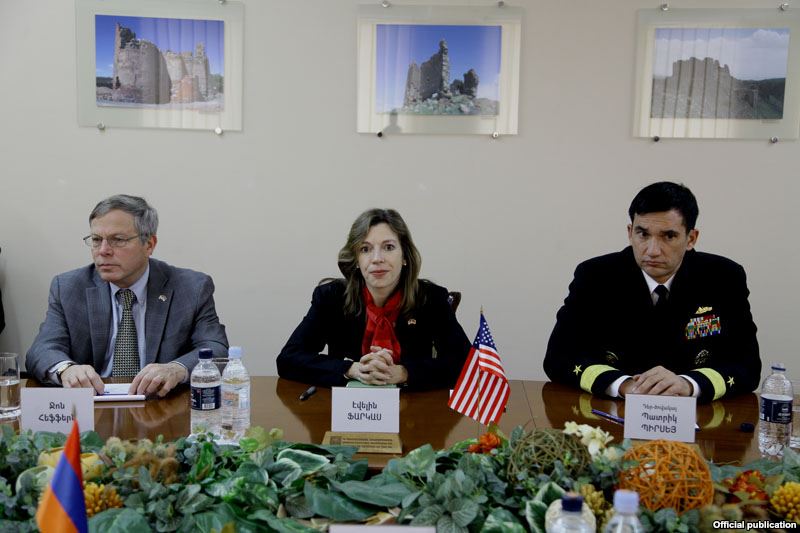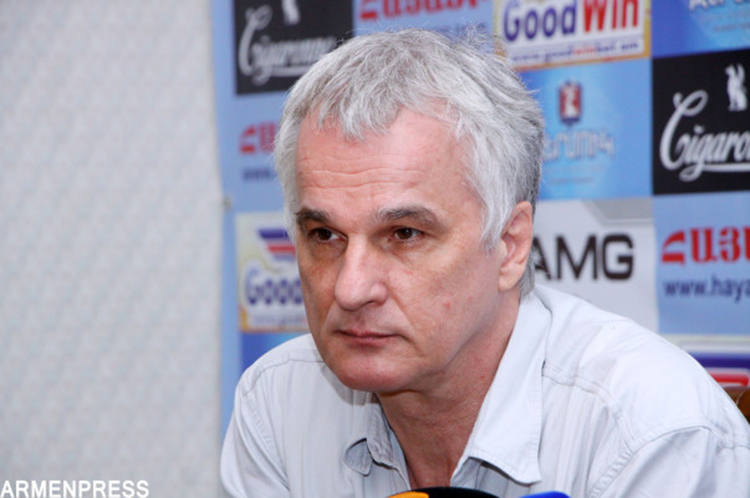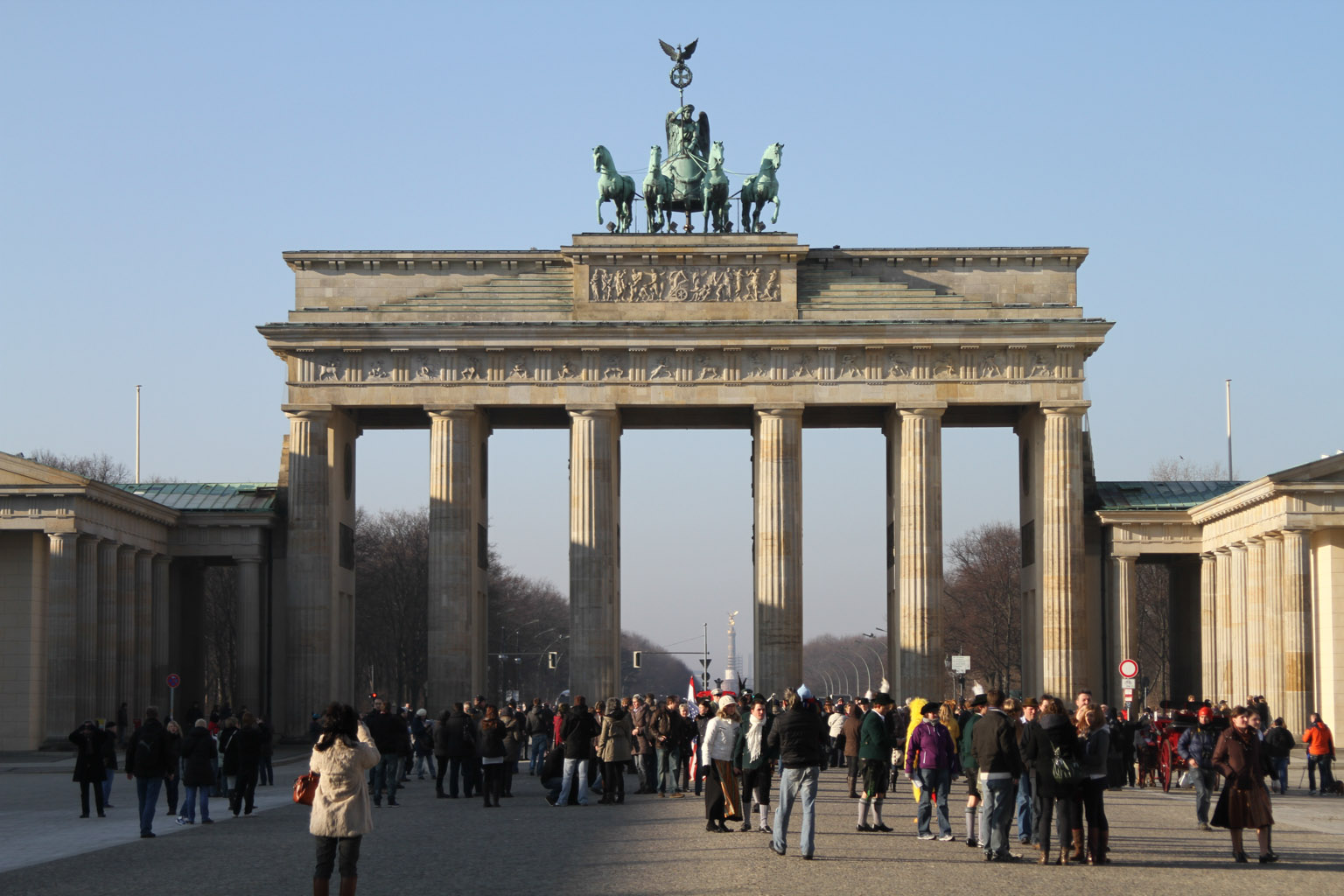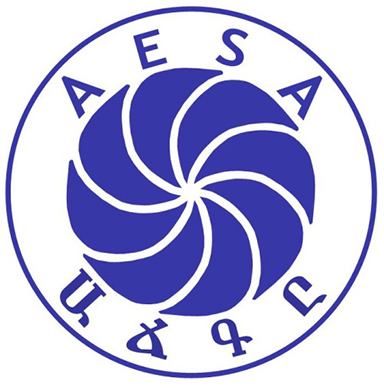YEREVAN — Armenia will deepen its military ties with the United States despite planning to join new Russian-led alliances of former Soviet republics, First Deputy Defense Minister Davit Tonoyan said on Thursday after two-day U.S.-Armenian “defense consultations.”
“Our president, defense minister and foreign minister have repeatedly stated that there are no obstacles, no changes in our military and security cooperation,” he said. “Joining one or another economic bloc does not inhibit Armenia. On the contrary, our defense cooperation with the United States will develop and deepen further.”
Tonoyan argued that that cooperation is regarded by the Armenian leadership as “one of the important factors” of national security. He insisted that Russia, which has a close military alliance with Armenia, does not object to it.
Tonoyan spoke at a joint news conference with Evelyn Farkas, the U.S. deputy assistant secretary of defense for Russia and Eurasia who headed a delegation of U.S. military officials during the consultations. Farkas held separate talks with Defense Minister Seyran Ohanian and Foreign Minister Edward Nalbandian on Wednesday.
“Armenia is a significant partner to the United States in many ways,” Farkas told reporters. “As a partner in the Caucasus region, as a partner with NATO in the Partnership for Peace [program,] as a partner with the U.S. European Command in promoting regional stability, and as a partner with the Kansas National Guard.”
Armenia has become a partner country in the U.S. Government-funded Global Peace Operations Initiative. Under this initiative, the U.S. expects to provide approximately $1.5 million over two years to support the development of Armenia’s peacekeeping capabilities. The initiative aims to improve the capabilities of partner countries like Armenia to contribute to UN and regional peace operations. This new partnership is a strong signal of the close cooperation between the U.S. and Armenia, and is recognition of Armenia’s commitment to international peace operations such as those in Kosovo, Afghanistan, and Lebanon.
“These bilateral defense consultations are an opportunity for us to talk about how we can continue to expand and deepen our defense relationship,” the Pentagon official said. She added that the two sides concentrated on continued U.S. assistance to an Armenian army unit providing troops to ongoing NATO-led missions in Afghanistan and Kosovo.
It was announced that the Pentagon will allocate $1.5 million in fresh aid designed to expand Armenia’s “peacekeeping capabilities” in 2014-2015. Tonoyan clarified that it will be spent on exercises and training programs that will facilitate Armenians deployments in other trouble spots.
In particular, Yerevan plans to contribute 60 troops to a United Nations peacekeeping force in Lebanon next year. Around 200 Armenian soldiers currently serve in Afghanistan and Kosovo.
Farkas lavished praise on those servicemen, saying that they have turned Armenia into a “net exporter of security.” “That allows Armenia to continue to elevate its stature internationally,” she said.
“This visit [by Farkas] highlights the strong and expanding cooperation between the United States and Armenia in the area of defense,” the U.S. Embassy in Yerevan said in a statement issued earlier this week.










